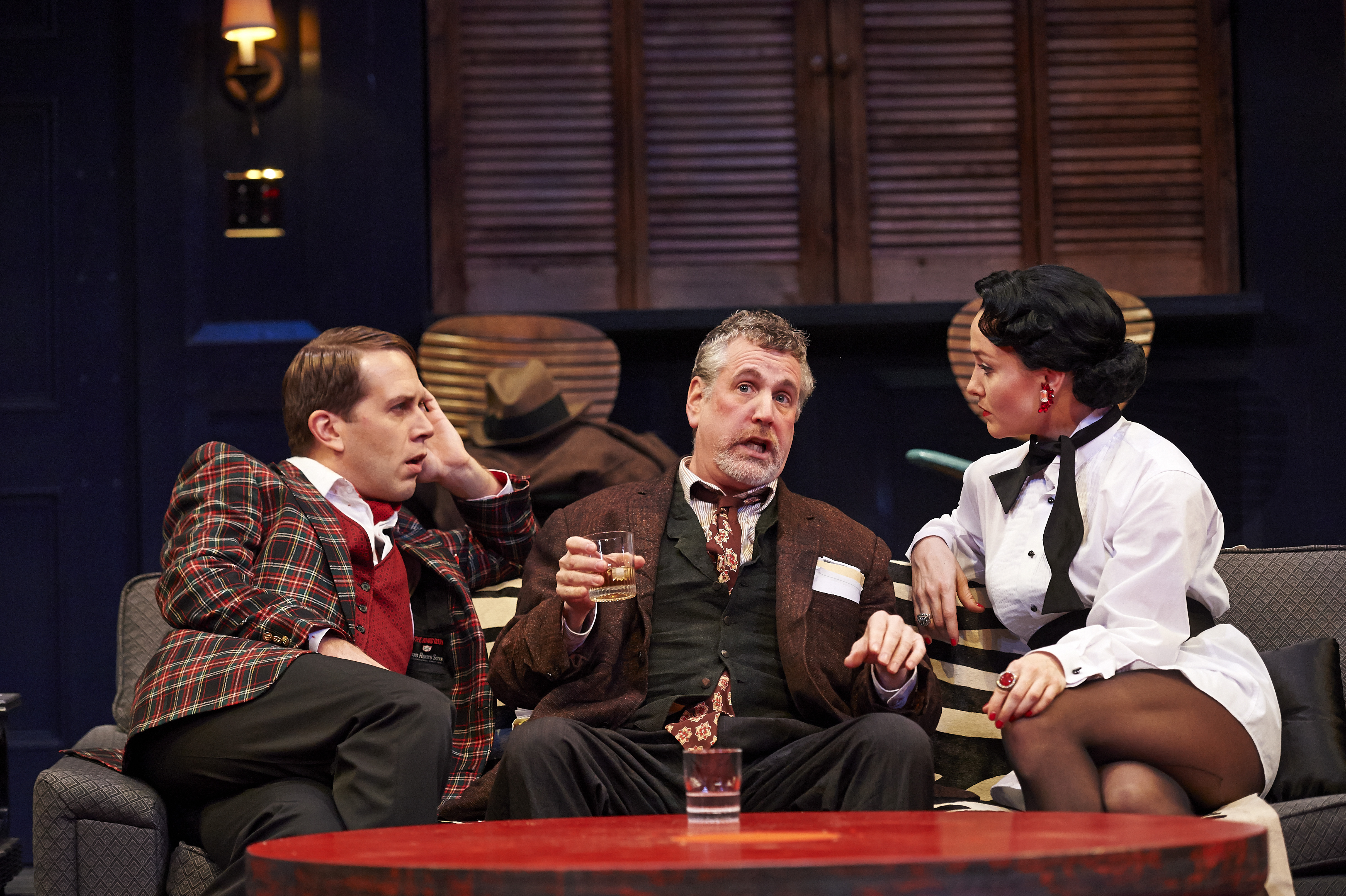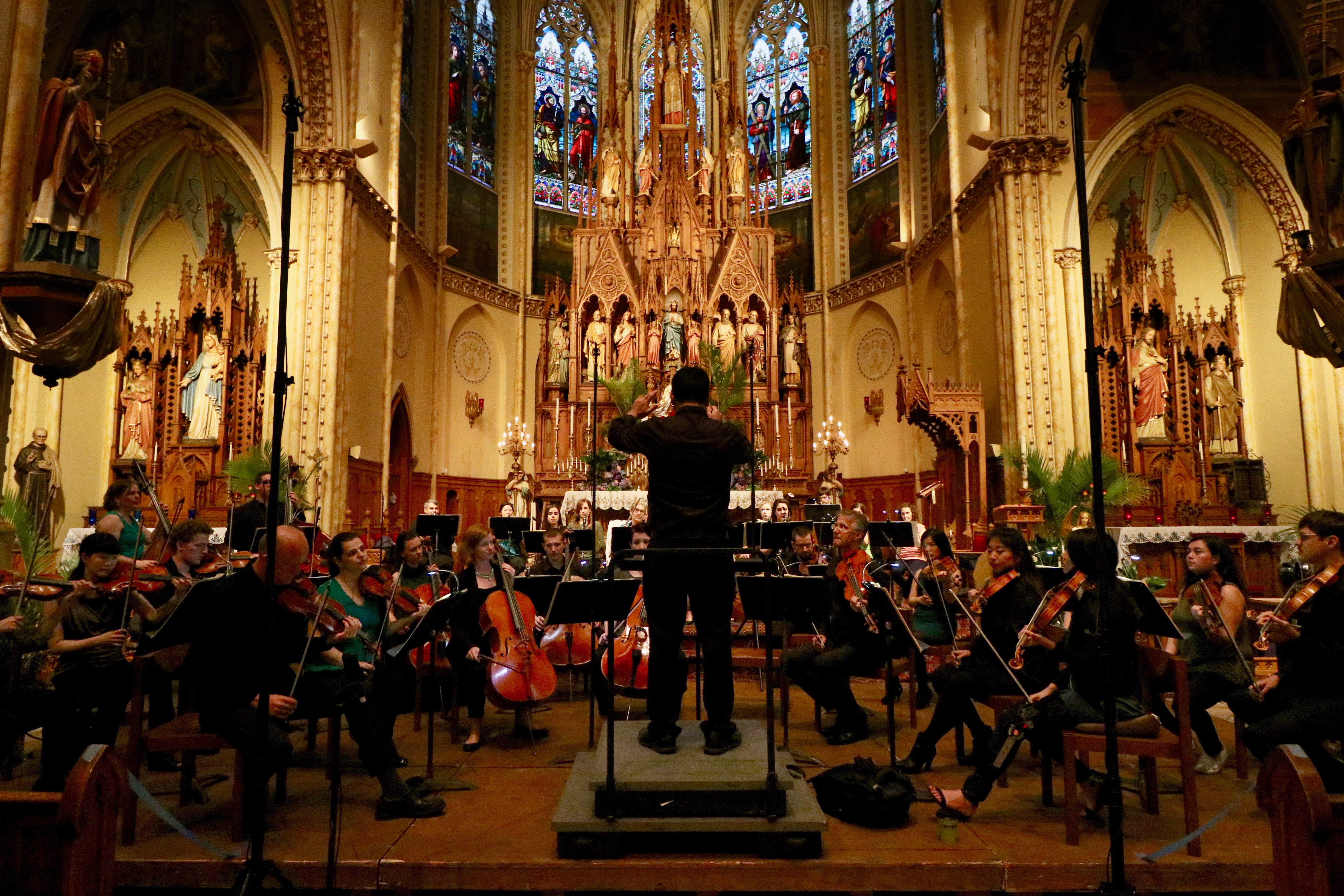By Ed Carroll
One of Northeast Ohio’s most respected arts centers is turning 90 in 2023.
An institution in Cleveland’s art scene, particularly on the west side, the Beck Center for the Arts in Lakewood will enter the milestone in strong shape. After weathering the uncertainty of the COVID-19 pandemic – and completing a number of needed renovations while taking advantage of stay-at-home orders and smaller crowds – the Beck Center now has updated theaters and rehearsal spaces, and expanded accessibility so even more people can access and enjoy a variety of performing arts.

The story of the Beck Center goes back further than 90 years – to February 1931, says Lucinda “Cindy” Einhouse, president and CEO of the Beck Center. That year, Lakewood’s Junior Chamber of Commerce started a performance project known as “The Guild of the Masques.” The project was part of a period known as the Little Theater Movement, where people sought to express themselves more. As a result, small companies began to form, bringing experimental and more intimate theater to people, often in non-traditional settings such as someone’s home.
“People were basically putting on plays for each other in small venues around the country,” Einhouse says.
The guild incorporated on May 16, 1933 as the Lakewood Little Theater, with Richard Kay as director. Einhouse says the Beck Center bases its anniversary around this incorporation, and the Lakewood Little Theater’s first performance was “The Queen’s Husband” by Robert Emmet Sherwood. Einhouse says the Beck Center still has many of the playbills from early shows, including that very first performance of “The Queen’s Husband.”
Fast forward many decades, and one of the reasons the Beck Center has remained both successful and beloved is it offers so much more than theater. In the last couple years it has expanded its spaces and accessibility, while also continuing to be a staple in the Northeast Ohio arts scene and helping grow that community through its outreach and educational efforts.
“This was truly an evolution over time,” Einhouse says. “Education has actually grown up to be a bigger part of our business today, but at the time when the Lakewood Little Theater incorporated, they started almost immediately classes for adults because they were teaching diction and stage movement, and all these things that would be helpful to people putting the shows on the stages.”
Creating history
The Lakewood Little Theater moved into its home in 1938. Before settling into what was then known as the Lucier Movie Theater at 17823 Detroit Ave., the group performed at venues and living rooms around the area. The theater group eventually purchased the building outright in 1947, according to the center’s website.

Photo / Steve Wagner.
The Lakewood Little Theater began offering adult theater classes in 1936, and eventually formalized its education program for children by incorporating the Lakewood Little Theater School in 1948. Einhouse says teaching dance followed not too long after, as many of the performances involved some aspect of dancing.
In December 1975, the company broke ground on the Lakewood Little Theater/Kenneth C. Beck Center for the Cultural Arts, after a fundraising campaign and a matching donation by businessman Kenneth Beck. It expanded around the original theater, adding among other things, a new dressing room, a museum and a 500-seat auditorium, according to the website. After dropping the Lakewood Little Theater from the name in 1976, the center also purchased an adjacent National Guard armory in 1979, further increasing its space.

Photo / Beck Center for the Arts
Among other advancements, one of the most notable changes occurred in the late 1990s, when the center’s board decided to become a professional theater and begin paying its actors, the website says. The Beck Center then merged with Riverside Music Academy to further enhance the center’s music education and creative therapy offerings in 2001.
Einhouse says for many years, the visual arts were a bit more ancillary to the theater’s operations, but they started in the 1950s and really formalized after the merger with Riverside Music Academy.
After flirting with the idea of moving from its longtime home, the theater recommitted to its established location in 2006, and formally changed its name to the Beck Center for the Arts on Aug. 26, 2011, Einhouse says.
Revamping in the COVID-19 years
Things were more or less stable for the Beck Center until the COVID-19 pandemic hit in March 2020. The pandemic hit the performing arts and live theater especially hard as necessary restrictions made in-person shows a rarity and group education difficult.
Einhouse credits the faculty and staff of the Beck Center for not just managing with the changes, but thriving with them.
“I think that the staff and faculty here have demonstrated an extraordinary adaptability that I don’t think any of us knew we had,” she says. “Within a week of being shut down, we had classes online.”
As music classes are one-on-one with students, it was a bit easier to connect online for those programs, Einhouse says. With group classes, “it took a little more maneuvering, especially like dance,” she adds, as dance teachers were clearing out rooms in their homes to teach students.
But Einhouse knew it was important for the Beck Center to not only keep going, but to be there for the community as well, she says.
“In a really uncertain time, people turn to the arts and need it even more,” she says. “We did a lot of free programing at first, and at the same time, our management team went full force into trying to figure out what was out there in the way of pandemic relief funding. We went 100% at pandemic relief funding and went to every source we could find.”
She says additionally, the center’s board made a “huge” decision to continue a capital fundraising campaign for renovations, which included improvements to the education wing, the oldest part of the Beck Center complex.
“As it turns out, that was the greatest, greatest thing that we did that because nobody was in the building” Einhouse says. “It was noisy, it would have been impossible for us to have our regular number of people for classes. So we got that out of the way. Then, when pandemic protocols were eased somewhat and people started coming back, we had this brand-new place for people to come back to, and that made people much more excited and eager to come back.”
She says among the renovations were expansions to make the spaces inside the Beck Center more accessible and in line with the Americans with Disabilities Act. The age of the building had made some areas of the center previously practically inaccessible for people who use wheelchairs. Phase one of the renovations were completed March 10, 2021 – purposely a year to the date after starting the capital campaign. Phase two officially finished a year later on March 10, 2022.
Phase three of the renovations has started with tearing down the annex building in the front of the center. Einhouse says this will let the Beck Center reconfigure the landscape to have a drop-off center in front and add a marquee to the front doors, among other changes. These renovations are scheduled for completion during the 90th anniversary celebration in 2023.
“It’s all with an eye towards the customer experience,” she says. “It’s not necessarily about creating more space, but making the space that we have more functional and enjoyable.”

Photo / Beck Center for the Arts
The Beck Center effect
While the Beck Center is known for delighting its fans with performing and visual arts, one reason it’s remained beloved is the connection it has with students and faculty, and some of these connections have remained strong for decades.
Ali Cassidy of Sheffield Lake has experienced the Beck Center from both sides – first as a dance student and now as a member of the faculty who teaches dance to students who were just like her. She first came to the Beck Center after the dance teacher at her local YMCA left. Her second teacher at the Beck Center was Melanie Szucs, who is still at the center today as associate director of dance education, along with ballet teacher Anna Roberts.
Cassidy continued taking classes until she left for college at The Ohio State University in Columbus, and admitted she never thought she’d be teaching.
However, she took a dance education course her junior year that sparked her interest.
She decided to come back to teach at the Beck Center, in addition to her role as an elementary dance teacher in Lorain City Schools, because she still had a close relationship with Szucs and the other teachers, she says.
Cassidy says she appreciates that the Beck Center has created such a sterling reputation for itself all throughout Ohio. She also says the work the Beck Center does in the community is one reason it stands out from other performing arts centers.
“I would say what’s special about the Beck Center as a whole is the amount of outreach that they do,” Cassidy says. “I have taught some of the outreach programs in the summertime before, when different camps or day cares would come in and take classes. I think that was very nice, there were a lot of kids that said they always wanted to do dance or always wanted to do art but never signed up, so it was a nice intro for them.”
And ultimately, Cassidy says her familiarity with the Beck Center is comforting to her.
“I think the Beck Center just always gave me a sense of home, and I appreciate being able to come back to it whenever I need to or wanted to,” she says.
Upcoming performances
• “Elf The Musical”: Dec. 2–30
• “Ghost The Musical”: Feb. 10–26, 2023
• “William Shakespeare’s Land Of The Dead”: March 3–12, 2023
• “Noises Off”: March 24 to April 16, 2023
• “Once Upon A Mattress”: May 5–14, 2023
For more shows, programs and tickets, visit beckcenter.org










